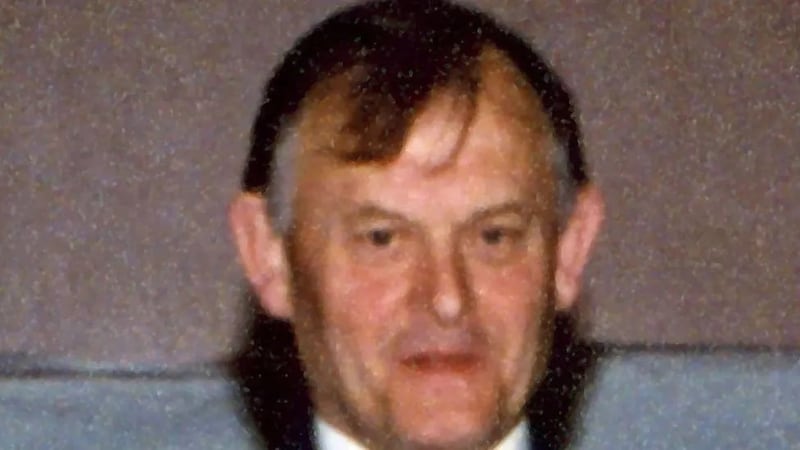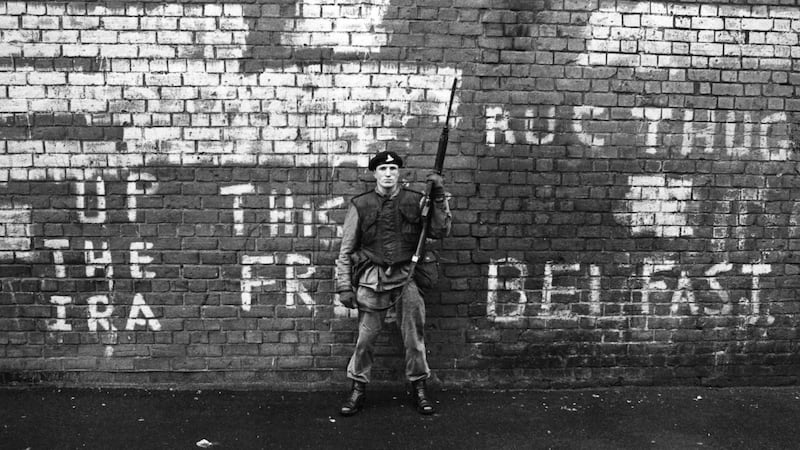From today, May 1, under the Northern Ireland (Legacy and Reconciliation) Act 2023, inquests into deaths resulting directly from the Troubles must cease unless “the only part of the inquest that remains to be carried out is the coroner or any jury making or giving the final determination, verdict or findings, or something subsequent to that”.
Part Four of this reviled British Legacy Act, opposed by all political parties in Northern Ireland and, most importantly, by all victims groups, provides for a process of memorialising the Troubles.
Also announced by the British government last week are plans for an “independent public history” of the British government’s policy towards Northern Ireland.
This can only be anything but independent. According to the Committee on the Administration of Justice, Northern Ireland Officer minister Lord Caine even claimed the British government was entitled to put forward its version of history.
Just as the British Legacy Act will not “address the legacy of the Northern Ireland Troubles and promote reconciliation”, this “independent public history” will not “help allow for a fuller examination of the Troubles than has ever been possible before”, as declared by Secretary of State Chris Heaton-Harris.

It can be dressed up and packaged as independent all it wants but this is a British government initiative, from a government that is currently demonstrating, through the Legacy Act, how little it respects independence in the examination of its role throughout the Troubles.
This week alone, a report from a panel convened by the Norwegian Centre for Human Rights claimed Britain’s reputation will be “severely damaged” by the act.
Last week, as this history project was announced, while families of victims were scrambling desperately to get answers, closure and justice before the axe falls today on the inquests they are involved in, the British government was going out of its way to prevent any information or piece of intelligence relating to its activities entering the public domain.

Differences have emerged between the PSNI and the British government, with the PSNI Chief Constable Jon Boutcher “at odds” with Heaton-Harris over the disclosure of security force material. Boutcher criticised the British government of overusing its policy of ‘neither confirm nor deny’ (NCND), which he believes is feeding a narrative of “collusion and conspiracy”. Just weeks ago, Heaton-Harris was accused of “an unprecedented political intervention” by questioning the actions of Boutcher over the inquest into the 1998 LVF killing of Fergal McCusker.
Boutcher had to remind the Secretary of State that he was “independent of the executive and not subject to the direction or the control of government ministers, departments or agencies”. Boutcher, in presiding over Operation Kenova, was unable to publicly name the British agent in the IRA, Stakeknife, due to the NCND policy.
Given what is happening before our eyes in real-time, is it really credible for the historians who have joined the advisory panel or who are selected to write the “public history” to claim that it will be independent?
Heaton-Harris declared his administration would open up “government files to independent historians, including the records of previous administrations and those held across different departments and agencies”.
As an historian, of course, the prospect of accessing newly-available archives is always mouth-watering, something that one of the chairpersons of the advisory panel, Lord Paul Bew, amongst others, has been advocating for, for decades.
But at the heart of the problem with opening up government files are the files that will not be made available. Judging by this British government’s current actions in preventing the public accessing of files for ongoing inquests, it is patently obvious the historians involved in this project will not have access to the full archive, certainly not files the British government deems sensitive.

As Professor Marie Coleman has pointed out, there are files from 120-130 years ago the British government still deems too sensitive to grant access to. It stands to reason, therefore, that there will be a significant limit to the amount of Troubles-related files historians will have access to, which fatally undermines the whole project.
We only have to look at the legal action Heaton-Harris is now threatening against coroners of inquests who wish to disclose intelligence information, or watch the recent RTÉ documentary on Seán Brown showing the blacked-out redacted files provided by the British government. In one file of 52 pages, every word was redacted.

I expect nothing else from this British government which is essentially trolling the families of victims by, on the one hand, doing everything in its power to obstruct their access to its files, while promising, at the same time, to provide historians with full access to its files. I do, though, seriously question the judgement of the historians who have agreed to take part in this charade, for a charade is what it is.
This is another insensitive and crass move by this British government which appears only interested in absolving itself from blame for it sins of the past
This is a project promoted, sponsored and paid for by the British government, a protagonist in the conflict it now wants to “independently” oversee the recalling of. Does anyone believe that this project can independently and effectively examine the role of state violence, a key component of any thorough study of the Troubles, when the state in question is behind this project?
No historian should have anything to do with this so-called “independent public history” project, another insensitive and crass move by this British government which appears only interested in absolving itself from blame for it sins of the past.



